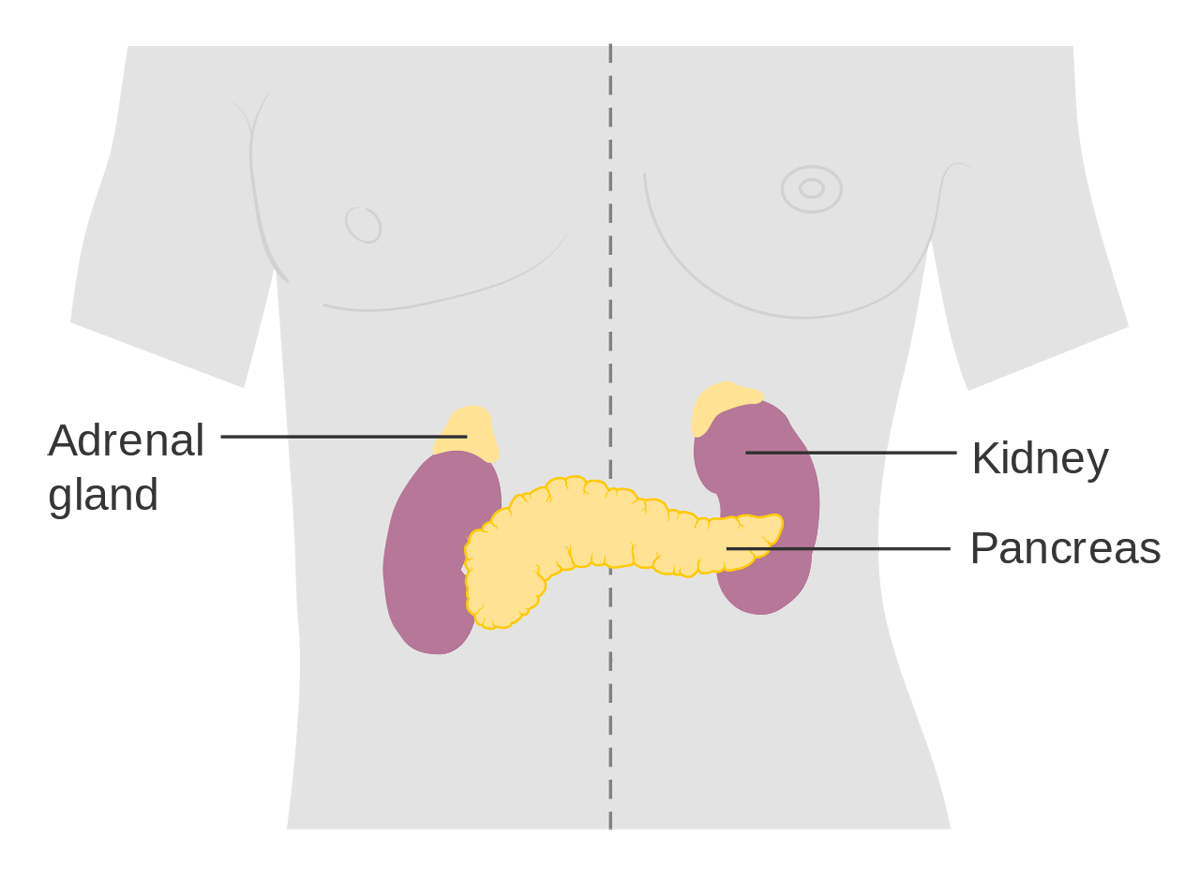
Adrenal Gland Disorders
Enlarged adrenal glands can develop due to some other conditions and due to hormonal imbalance. There are a number of conditions that may be possible causes for adrenal disbalance. Addison’s Disease, known under the name primary adrenal insufficiency, is a condition that develops when the adrenal gland isn’t able to produce the sufficient amounts of cortisol and aldosterone.
Amyloidosis is another possible cause for adrenal gland disbalance. The reason for the development of this condition is the dysfunction of bone marrow cells. They are unable to break and that leads to enlarged adrenal glands.
Chronic infections such as pneumonia and bronchitis are other possible causes for adrenal disorder manifested in swelling and enlargement. Cushing's syndrome occurs when there is a high level of cortisol in the body and this condition is in a close connection to type 2 diabetes, whose result is non-cancerous development of the tumor of adrenaline glands. Phaeochromocytoma is a cancer that begins to form in the adrenal gland, resulting in the enlarged gland.
Symptoms
As we can’t prevent our body from developing enlarged adrenal gland, the best thing that we can do is to recognize symptoms and start the treatment in the early phase so that the outcome will be full recovery. How to see if we have enlarged adrenal glands? The tests that can detect enlarged adrenal glands include MRI scan, CT scan, ultrasound or MIBG scan. The most frequent symptoms include adrenal adenoma and carcinoma, Adrenogenital Syndrome, Increased Adrenalin Level, Increased Noradrenalin Level, and High Adrenal Autoantibodies. It is not an easy task to recognize these symptoms and a lot of tests are required in order to diagnose them. Because of that, it would be best to visit a doctor whose specialty are adrenal glands.
Treatment for Enlarged Adrenal Gland
The method of treatment depends upon the severity of the disorder. Because of that, there isn’t a unique method of treatment. It depends on the doctor’s evaluation and judgment what kind of the treatment will be implemented, but it is also necessary to take into consideration a patient`s medical history.
- medlineplus.gov/adrenalglanddisorders.html
- www.nhs.uk/conditions/addisons-disease/
- Photo courtesy of Cancer Research UK by Wikimedia Commons: commons.wikimedia.org/wiki/File:Diagram_showing_where_the_adrenal_glands_are_in_the_body_CRUK_415.svg
















Your thoughts on this
Loading...